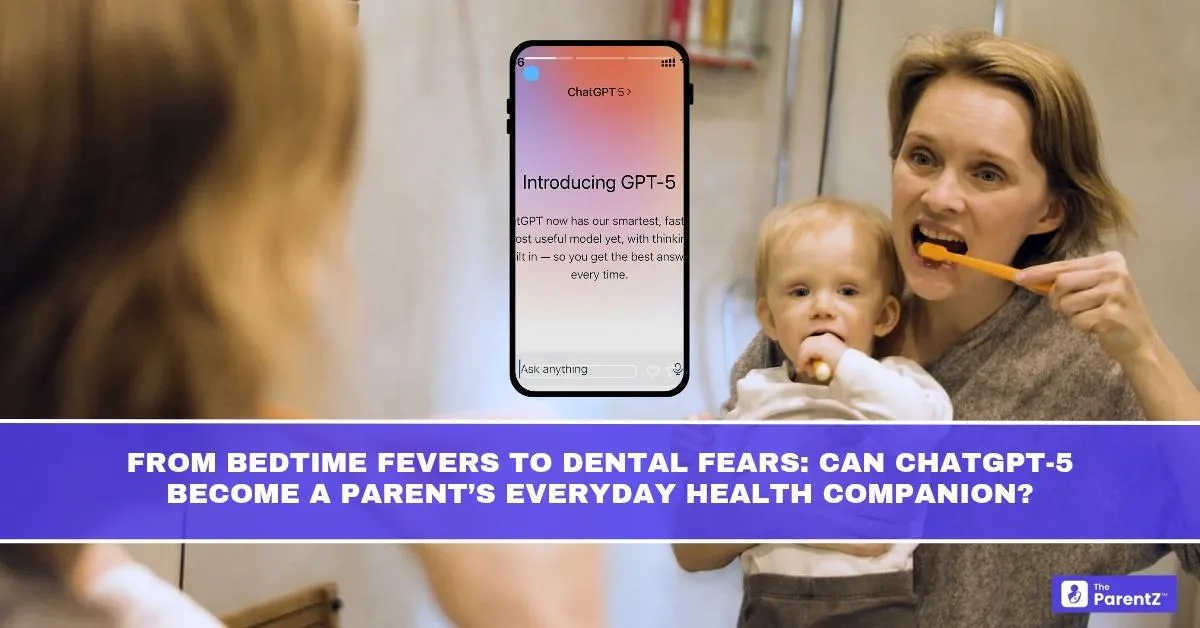The Midnight Panic Every Parent Knows
It is almost midnight. A child wakes up crying with a sudden fever. Parents rush for the thermometer, debating whether to call the doctor, search online, or wait till morning. Such moments are common in every household. The uncertainty, combined with fear of missing something serious, makes parents crave guidance that is quick, reliable, and comforting.
For years, families relied on search engines for answers. But the results were often confusing, filled with jargon, and sometimes even misleading. With the arrival of ChatGPT-5, a new possibility has opened up: what if parents had a digital companion that could walk them through these stressful moments with clarity and empathy?
The Promise of ChatGPT-5 in Parenting
Unlike traditional online searches that simply list pages, ChatGPT-5 responds in conversational language. It can explain what a fever might mean, when to give medication, and when to seek urgent medical attention. The strength of this tool lies in its ability to break complex health terms into simple explanations, much like a family doctor would do in person.
For parents, especially those juggling work and childcare, having a guide that feels patient and non-judgmental can reduce stress. Imagine being able to ask, “My child has a mild cough at night, what should I watch for?” and receiving an answer that is clear, structured, and tailored for caregivers.
Small Daily Struggles Where AI Can Help
1. Managing Night-Time Illness
Children often fall sick outside of clinic hours. ChatGPT-5 can explain safe home remedies, outline red-flag symptoms, and advise whether a doctor’s visit can wait.
2. Dental Visit Anxiety
Many children fear the dentist. Parents can use ChatGPT-5 to prepare their child before an appointment, with age-appropriate explanations about what will happen and why. For example, it can suggest child-friendly ways to describe a filling or cleaning.
3. Everyday Nutrition Doubts
Parents frequently wonder about balanced diets, iron-rich foods, or whether packaged snacks are harmful. ChatGPT-5 can provide simple, evidence-based dietary tips that fit into a family’s lifestyle.
4. Screen Time and Mental Health
With growing concerns about digital exposure, parents often ask, “How much screen time is too much?” ChatGPT-5 can provide insights aligned with pediatric guidelines, helping families make informed choices without guilt or guesswork.
The Human Touch Still Matters
It is important to note that ChatGPT-5 is not a replacement for doctors. A pediatrician’s physical exam, professional judgment, and long-term relationship with the child cannot be replaced by technology. However, ChatGPT-5 can complement this relationship by preparing parents with the right questions before they meet the doctor, and by reducing unnecessary anxiety between visits.
Parents often describe feeling more confident when they understand what the doctor says. By learning the basics through AI, they may feel empowered to engage in more meaningful conversations during medical appointments.
The Challenges Parents Must Consider
While ChatGPT-5 brings many benefits, families also face important questions:
- Accuracy: No AI is flawless. Parents need to double-check critical health advice with qualified professionals.
- Over-Reliance: Technology can guide, but parents should trust their instincts when something feels urgent.
- Privacy: Families should ensure they use platforms that protect their child’s health data, since medical information is sensitive.
By acknowledging these concerns, parents can use ChatGPT-5 responsibly, making it an assistant rather than the sole decision-maker.
A Parent’s Perspective
Consider Radhika, a mother of two in Delhi. When her younger son developed sudden ear pain one evening, she opened ChatGPT-5 on her phone. The tool explained that ear pain is often linked to infections or colds, guided her on safe steps for relief, and advised her to watch for high fever or fluid discharge. By morning, she had enough clarity to consult her pediatrician without panic.
Such stories highlight how AI can fit into real family life, not by replacing doctors, but by offering comfort in the anxious hours when clinics are closed.
Looking Ahead
The future of family healthcare may be one where digital tools and human professionals work side by side. Schools may integrate AI health guides for routine queries. Pediatric clinics might use AI-driven chatbots for appointment reminders, medication instructions, or child-friendly health education. Parents could soon find themselves using these tools as naturally as they now use maps for directions.
Final Word
Parenting has always combined instinct, wisdom, and support systems. In the digital age, support can also come in the form of tools like ChatGPT-5. From guiding a parent through a midnight fever to preparing a child for a dental visit, AI can act as a steady companion.
The key lies in balance. Parents who embrace ChatGPT-5 as an aid, while continuing to trust pediatricians and their instincts, may find themselves less anxious and better informed. The journey of raising a child will always have its uncertainties, but perhaps now, families have one more ally by their side.





Be the first one to comment on this story.